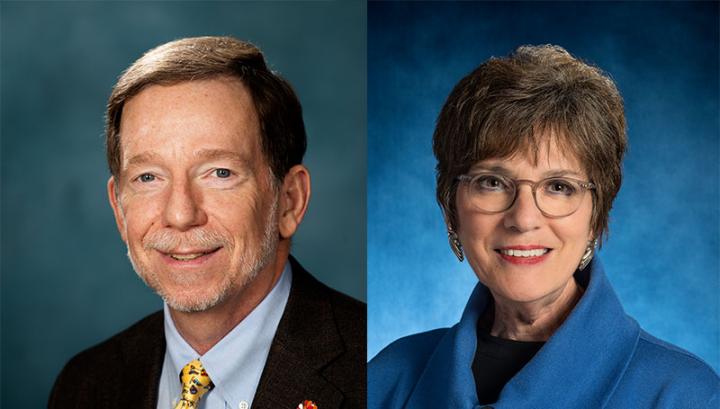
Credit: Johns Hopkins Kimmel Cancer Center
Due to advances in treatment, an ever-increasing number of patients are living longer as metastatic cancer survivors. They and their doctors face a host of new challenges that require immediate attention.
It used to be when you were diagnosed with metastatic cancer, you were told to get your affairs in order, period. Now, with advances in research and treatment, a diagnosis of metastatic disease is no longer an immediate death sentence. Many of these patients, who once would have died within months, are now living extended years. But it’s not as simple as it sounds. Two Johns Hopkins Kimmel Cancer Center professionals know this all too well.
Terry Langbaum, M.A.S., a long-time cancer center administrator, has survived multiple cancer diagnoses and lives firsthand with the challenges and complications that come with life as a cancer survivor with no current options for cure. In a perspective published in the April 4 issue of the New England Journal of Medicine (NEJM), Langbaum and Thomas Smith, M.D., a medical oncologist with recurrent prostate cancer, address the challenges confronting those living with metastatic cancer. They also strongly recommend that researchers study this topic and share their findings with the medical community caring for this emerging and ever-growing population.
“Long-term survivors with metastatic cancer … have not been well-studied, though diagnoses of incurable cancer will have substantial effects on patients’ families, on workplaces and on U.S. health care resources in the coming years,” the authors write in the NEJM piece.
In the article, Langbaum, administrative director at Johns Hopkins Comprehensive Transplant Center, and Smith, professor of oncology and palliative care at the Johns Hopkins University School of Medicine, share highly personal examples of the urgent demand for more awareness of this population and its needs.
Five months after receiving total androgen blockade for recurring prostate cancer, Smith experienced a swift and serious return of depression, from which he’d suffered decades earlier. This time, severe mood swings and thoughts of suicide landed him in the hospital.
Members of his care team were surprised to learn that this common treatment for prostate cancer increases patients’ relative risk of depression by 41 percent. This followed a serious and potentially life-threatening transient ischemic attack, possibly due to his treatment, as well as months of unrelenting severe hot flashes and insomnia due to the androgen deprivation. Smith hopes that others will receive warnings or preemptive referrals to avoid or at least minimize the fallout.
For Smith, the incident provided a startling example of just how ill-prepared patients and their care providers can be in facing this new frontier of metastatic cancer survivorship, which presents a mix of hope and uncertainty for patients, their families and their health care providers. Beyond the immediate medical issues this circumstance raises, Smith and Langbaum point out that patients must also cope with ongoing burdens that are psychosocial, financial (many new therapies cost more than $10,000 per month), emotional and physical. Only one person at Johns Hopkins, Lillie Shockney, R.N., Ph.D., has been studying how to best help people face these challenges.
In addition to addressing the unforeseen burdens facing a growing number of metastatic cancer survivors, the authors also present some possible strategies to ease their journey. They include developing coping mechanisms adopted from other chronic, life-shortening conditions; providing therapy to help diminish patients’ feelings of despair; offering mechanisms of support to both patients and their providers; and coordinating care management among primary care, oncology, and palliative care professionals to improve the patient experience.
The authors sum up the perspective piece with an urgent call for action. They write: “We believe the time has come to study metastatic cancer survivors and better educate the medical community about the needs and challenges of this growing population.”
###
Media Contact
Larry Frum
[email protected]
Original Source
https:/




